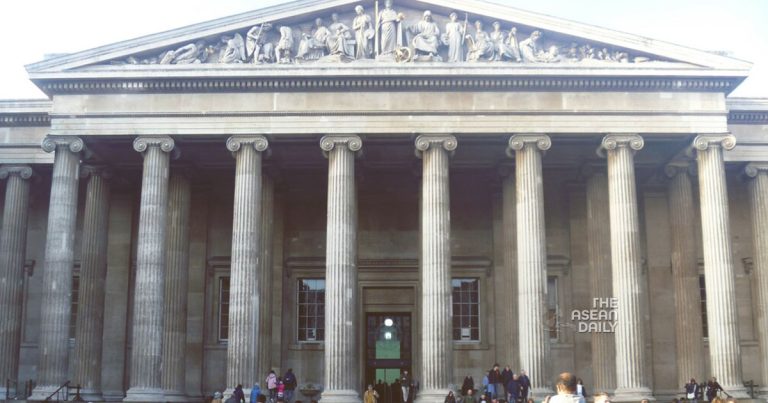17-8-2023 (LONDON) The prestigious British Museum has recently announced a disheartening discovery as items spanning centuries, with origins dating back to the 15th century B.C., were revealed to be missing, stolen, or damaged. Following this revelation, the museum has taken swift actions, including the dismissal of a staff member linked to the incident, as well as initiating an independent security review and an ambitious plan to recover the lost artifacts.
The pilfered items encompass an assortment of treasures, from intricate gold jewelry to gems adorned with semi-precious stones and glass. These artifacts span from the 15th century B.C. to the 19th century A.D., bearing immense historical and cultural significance. It is noteworthy that these artifacts, mostly petite in size, were stored within a secure storeroom and had not been featured in recent exhibitions.
The British Museum’s Chair, George Osborne, articulated the institution’s immediate priorities, stating, “Our priority is now threefold: first, to recover the stolen items; second, to find out what, if anything, could have been done to stop this; and third, to do whatever it takes, with investment in security and collection records, to make sure this doesn’t happen again.” Osborne further highlighted the ongoing transformation of the museum’s vision, emphasizing that this unfortunate incident strengthens the case for the ongoing museum reimagining.
In response to the incident, legal actions are being pursued against the dismissed staff member, while London’s Metropolitan Police Service has undertaken an investigation into the matter.
The British Museum, founded 264 years ago, stands as a prominent tourist attraction in London, drawing global visitors who seek to witness a diverse array of artifacts. From the iconic Rosetta Stone, unlocking the enigma of ancient Egypt’s language, to 12th-century Chinese poetry scrolls and indigenous Canadian masks, the museum houses an extensive collection.
Nonetheless, the institution has grappled with controversy due to its stance on retaining historical items obtained during the era of the British Empire, despite appeals from global communities for their repatriation. Some of the most prominent disputes include demands for the return of marble carvings from Greece’s Parthenon and the Benin bronzes from West Africa.
Expressing remorse, Hartwig Fischer, the director of the British Museum, conveyed the institution’s commitment to rectifying the situation. Fischer noted that the incident is highly irregular and highlighted the museum’s profound dedication to safeguarding its invaluable collections.




